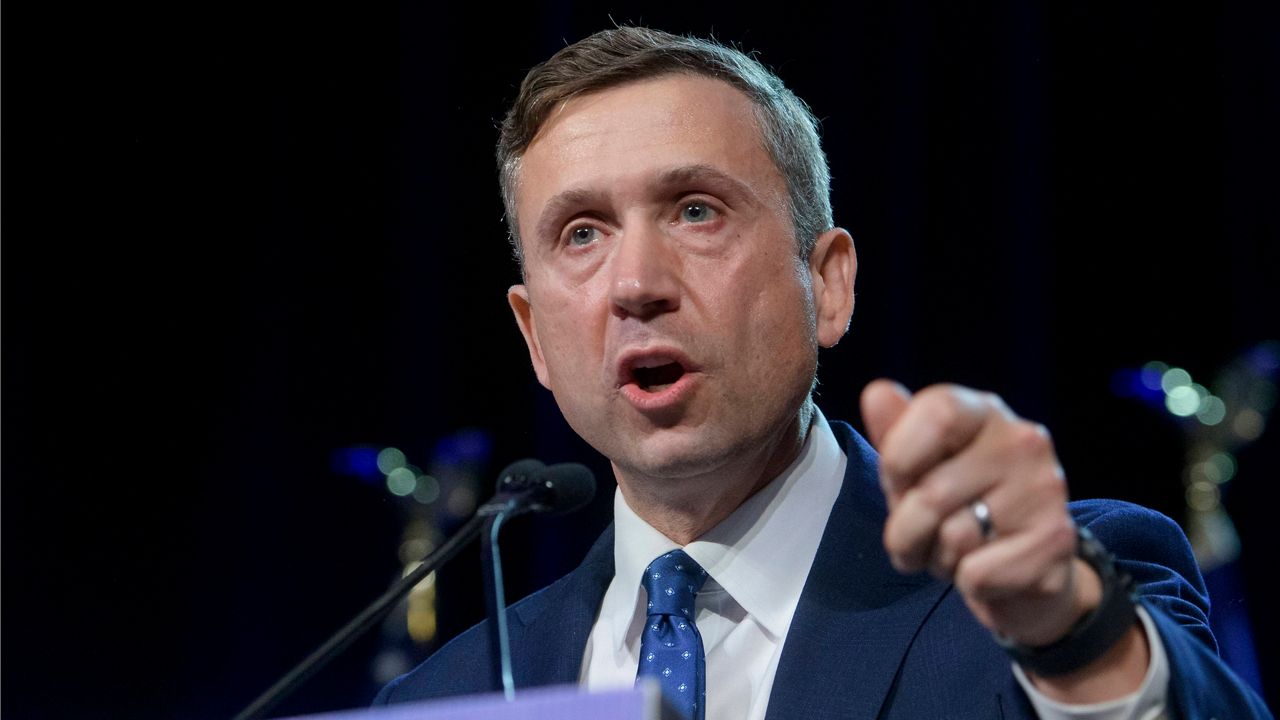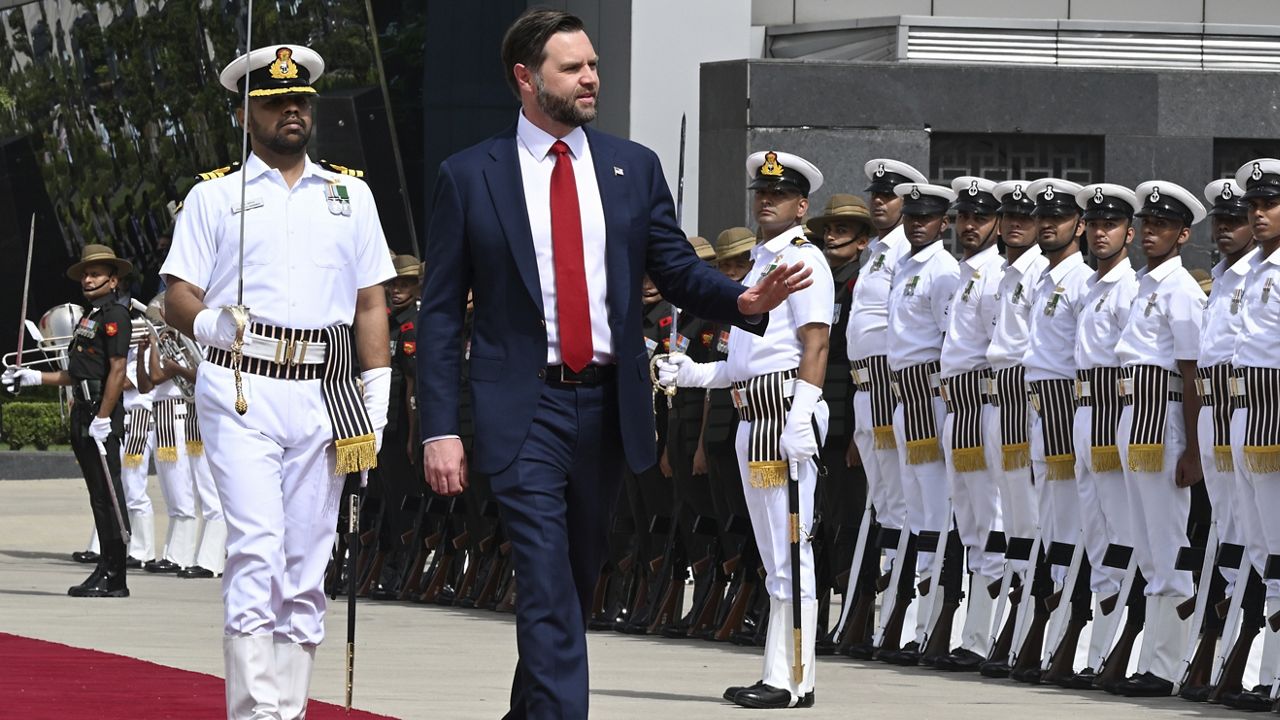President-elect Donald Trump announced that he is nominating former Director of National Intelligence John Ratcliffe to lead the Central Intelligence Agency.
A former Republican congressman from Texas, Ratcliffe served as director of national intelligence for the final months of Trump’s first term, leading the U.S. government’s spy agencies during the coronavirus pandemic.
“I look forward to John being the first person ever to serve in both of our Nation’s highest Intelligence positions,” Trump said in a statement. “He will be a fearless fighter for the Constitutional Rights of all Americans, while ensuring the Highest Levels of National Security, and PEACE THROUGH STRENGTH.”
What You Need To Know
- President-elect Donald Trump announced that he is nominating former Director of National Intelligence John Ratcliffe to lead the Central Intelligence Agency
- A former Republican congressman from Texas, Ratcliffe served as director of national intelligence for the final months of Trump’s first term, leading the U.S. government’s spy agencies during the coronavirus pandemic
- Ratcliffe is a more traditional pick for the role, which requires Senate confirmation, than some rumored loyalists pushed by some of Trump's supporters
- As intelligence director, he was criticized by Democrats for declassifying in the final days of the 2020 presidential election Russian intelligence alleging damaging information about Democrats during the 2016 race even though he acknowledged it might not be true
- On Tuesday, Trump also said he had chosen former Arkansas Gov. Mike Huckabee as ambassador to Israel and his longtime friend Steven Witkoff to be a special envoy to the Middle East
Ratcliffe is a more traditional pick for the role, which requires Senate confirmation, than some rumored loyalists pushed by some of Trump's supporters.
His position as DNI also made him responsible for detecting and countering foreign efforts to interfere in American politics. That experience makes him a more traditional pick for the job, which requires Senate confirmation, than some rumored loyalists pushed by some of Trump’s supporters.
As DNI, Ratcliffe participated in an unusual night-time news conference just weeks before the 2020 presidential election in which he and other officials accused Iran of being responsible for a barrage of emails meant to intimidate voters in the U.S.
Also while in that role, Ratcliffe faced criticism for declassifying Russian intelligence that purported to reveal information about Democrats during the 2016 election even as he acknowledged it might not be true. Democrats decried the move as a partisan stunt that politicized intelligence.
Though Ratcliffe ultimately did get the DNI job, it wasn't smooth sailing.
In fact, he withdrew from consideration in August 2019 after just five days as he faced growing questions about his experience and qualifications.
Trump put Ratcliffe's name forward to replace the departed Dan Coats. But Democrats openly dismissed the Republican as an unqualified partisan, and Republicans offered only lukewarm and tentative expressions of support. Multiple news stories questioned Ratcliffe’s qualifications and suggested that he had misrepresented his experience as a federal prosecutor in Texas.
Ratcliffe said in a statement at the time that he remained convinced that he could have done the job “with the objectivity, fairness and integrity that our intelligence agencies need and deserve.”
“However,” he added, “I do not wish for a national security and intelligence debate surrounding my confirmation, however untrue, to become a purely political and partisan issue.”
He was nominated again the following February and confirmed in May 2020 by a sharply divided Senate.
Ratcliffe was elected to Congress in 2014, but his visibility rose in 2019 as an ardent defender of Trump during the House’s first impeachment proceedings against him.
He was a member of Trump’s impeachment advisory team and strenuously questioned witnesses during the impeachment hearings.
“This is the thinnest, fastest and weakest impeachment our country has ever seen,” Ratcliffe said after the Democratic-controlled House voted to impeach Trump over a phone call he had with Ukrainian President Volodymyr Zelenskyy.
When former special counsel Robert Mueller appeared before the House Judiciary Committee to testify about his investigation into Russian interference in the 2016 election, Ratcliffe was one of the more ardent Republican interrogators, forcefully questioning the prosecutor and blasting the report he produced.
A China hawk
Ratcliffe has repeatedly sounded the alarm about China, calling the country the top threat to U.S. interests and the rest of the free world.
That view places him in good company with other incoming Trump administration officials, including Michael Waltz, Trump's pick for national security adviser, who called for a U.S. boycott of the 2022 Winter Olympics in Beijing due to China's involvement in the origin of COVID-19 and its ongoing mistreatment of the minority Muslim Uyghur population.
“The intelligence is clear: Beijing intends to dominate the U.S. and the rest of the planet economically, militarily and technologically,” Ratcliffe wrote in a December 2020 op-ed in The Wall Street Journal. ”Many of China’s major public initiatives and prominent companies offer only a layer of camouflage to the activities of the Chinese Communist Party.”
China is bracing for renewed tensions with the Trump administration — and possibly a tariff war — while national security and intelligence officials who track China remain concerned about economic espionage, cyberattacks, technological advances and disputes over Taiwan that could further roil relations.
As the transition unfolds, Trump eyes one of his favorite targets: U.S. intelligence
Trump has long viewed the nation's spy services with suspicion, accusing them of trying to undermine his first term and campaigns. Now that he's returning to the White House, Trump's promises to overhaul the U.S. intelligence agencies put him on a collision course with one of most secretive and powerful parts of government.
For the CIA and other intelligence agencies, the start of Trump's second administration is a way to reset an often challenging relationship with a leader who has in the past dismissed them as the deepest of the deep state — Trump's label for the thousands of career federal employees that carry out the work of government regardless of who is president.
For Trump, the return to power offers an opportunity to follow through on promises to clean house of officials that he believes have tried to challenge his leadership and criticize his actions.
The stakes of the relationship with the spy agencies couldn't be higher and are almost certain to be reflected in Trump's appointments to top positions.
Former and current intelligence officials also are watching for clues indicating whether Trump will use U.S. intelligence to inform foreign policy and national security decisions or whether he will realize the fears of critics, who worry he could spill classified secrets or seek to weaponize intelligence work against Americans.
“If he comes in committed to retribution and cleaning house, that’s going to impact the agency. We're going to lose people, and there's going to be this fear: ‘What will get me in trouble politically?’” said Douglas London, a 34-year CIA veteran who now writes about intelligence work and teaches at Georgetown University.
London said that in his experience, intelligence officials work hard to avoid any appearance of partisanship and put their constitutional oaths ahead of politics.
“There’s very little agency officials can do," London added, "other than to show: ‘We’re here, we’re on your team, we’re here to support you.’”
Trump signaled his intentions the day after he won his second term.
“We will clean out all of the corrupt actors in our national security and intelligence apparatus, and there are plenty of them,” Trump said in a video released last week. “The departments and agencies that have been weaponized will be completely overhauled.”
In an effort to head off any difficulties with the president-elect, intelligence agencies are emphasizing their nonpartisan mission and their usefulness to any new president looking to understand a globe complicated by wars in Ukraine and the Middle East and the growing partnership between China, Russia, North Korea and Iran.
Intelligence officials won't say if Trump has already received an intelligence briefing, but the Office of the Director of National Intelligence released a statement saying it is following a standard procedure for new presidents that dates to Dwight Eisenhower's election.
“ODNI is acting consistent with the tradition, in place since 1952, of providing intelligence briefings to the president-elect," the office wrote.
During his time in the White House or on the campaign trail, Trump has been anything but traditional, displaying an animosity toward the nation’s spy agencies unlike any seen since Richard Nixon, who believed the CIA and other agencies sought to undermine his presidency.
Trump often railed against the CIA and other spy agencies, accusing them of working to undermine his first administration and seeking to prevent him from retaking the White House. He also has blamed intelligence officials for questioning his relationship with Russian President Vladimir Putin.
Trump received fewer intelligence briefings as president than any other recent commander in chief. In 2021, President Joe Biden suggested that Trump should no longer receive the standard intelligence briefings given to former presidents, calling Trump “erratic.”
Trump also was accused of mishandling classified documents at his Mar-a-Lago estate — a case now stalled in the courts that prosecutors are seeking to wind down following the election.
Trump's win gives him a mandate to carry out his vision for national security and intelligence, said Elbridge Colby, who served as a deputy assistant secretary of defense in the first Trump administration.
Colby said wars in the Middle East and Ukraine, along with China's growing rivalry, show Trump doesn't have time to be delicate with the nation's national security and intelligence agencies, likening them to the Titanic heading toward an iceberg.
“If you turn the Titanic 90 degrees, people are going to fall out of their bunks, chandeliers and beautiful plates are going to get broken," Colby said Sunday on Tucker Carlson's internet show. “But that's where we are. ... President Trump ran against the system.”




)





